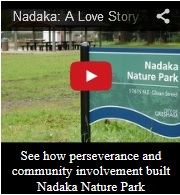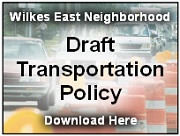 Lee Dayfield |
Lee Dayfield says Metro-approved parks funding should not be used as an excuse by the city of Gresham to reduce parks funding. Meanwhile, stay-at-home orders ask that you only venture out for essential needs. Notably, access to public parks for exercise and fresh air while still practicing social distancing is among those allowed needs, and for good reasons. |
Source: Pamplin Media Group
Thursday, April 16, 2020
If you have been out and about in our local parks and trails this past week you might have noticed how many of your neighbors are doing the same. It is not just the improving weather.
The pandemic has put a renewed premium on proximity to parks and nature. For those of us fortunate enough to have high quality public greenspace nearby, the value is especially self-evident. But long before this pandemic, research has demonstrated what people know intuitively: access to parks and nature is no simple frill or amenity, but an essential determinant of individual and community health.
Unfortunately, Gresham's City budget has made parks a low priority in recent years. Park investments made by Gresham voters a generation ago have not kept pace. To be sure, our community has many volunteers and private donors who make some parks shine.
Friends of Nadaka and the Gresham Japanese Garden are effectively harnessing volunteers and private donations; Ricki Ruiz continues to secure grants to develop futsal courts; and North Gresham Neighborhood Association is poised to build a playground at Kirk Park funded primarily through private donations.
However significant, these isolated projects belie systemic divestment. In recent years, fewer and fewer general fund dollars have gone to parks and recreation. Gresham's almost non-existent recreation programming leaves vital services to underfunded nonprofit organization like Gresham-based Play Grow Learn, which mentors at-risk adolescents using nature-play, urban gardening and athletics in our parks. Relying on nonprofits, grants, private donations, and the generosity of volunteers is not a sustainable path to a vibrant thriving parks and recreation system that bolsters our health and prosperity.
We can do a lot better.
Today, as the fourth largest city in Oregon, Gresham has the lowest per-capita investment in local parks and recreation in the Metro region.
In a hopeful turn, the majority of Gresham voters passed Metro's regional parks and nature funding measure in November 2019. The measure will infuse some additional capital funds into Gresham's local parks system. Public officials should not use that as an excuse to backfill further cuts to parks. Now is the time to launch a parks feasibility study of new local investment options and to give the community greater voice and vote in decisions with innovative tools like participatory budgeting.
As federal stimulus funds become available, Gresham would be wise to creatively invest in the city's backlog in park stewardship and deficient parks programming while putting people to work. The Nadaka Ambassador Program, which employs Rockwood residents to steward the park and garden, is a great model.
In these difficult and uneasy times, we must not lose sight of the value of stewarding our parks and nature which, now more than ever, are helping keep us healthy and connected.
Lee Dayfield is a parks advocate. In 2009, Friends of Nadaka, with Dayfield at the helm, organized the purchase and development of Nadaka Nature Park.
















